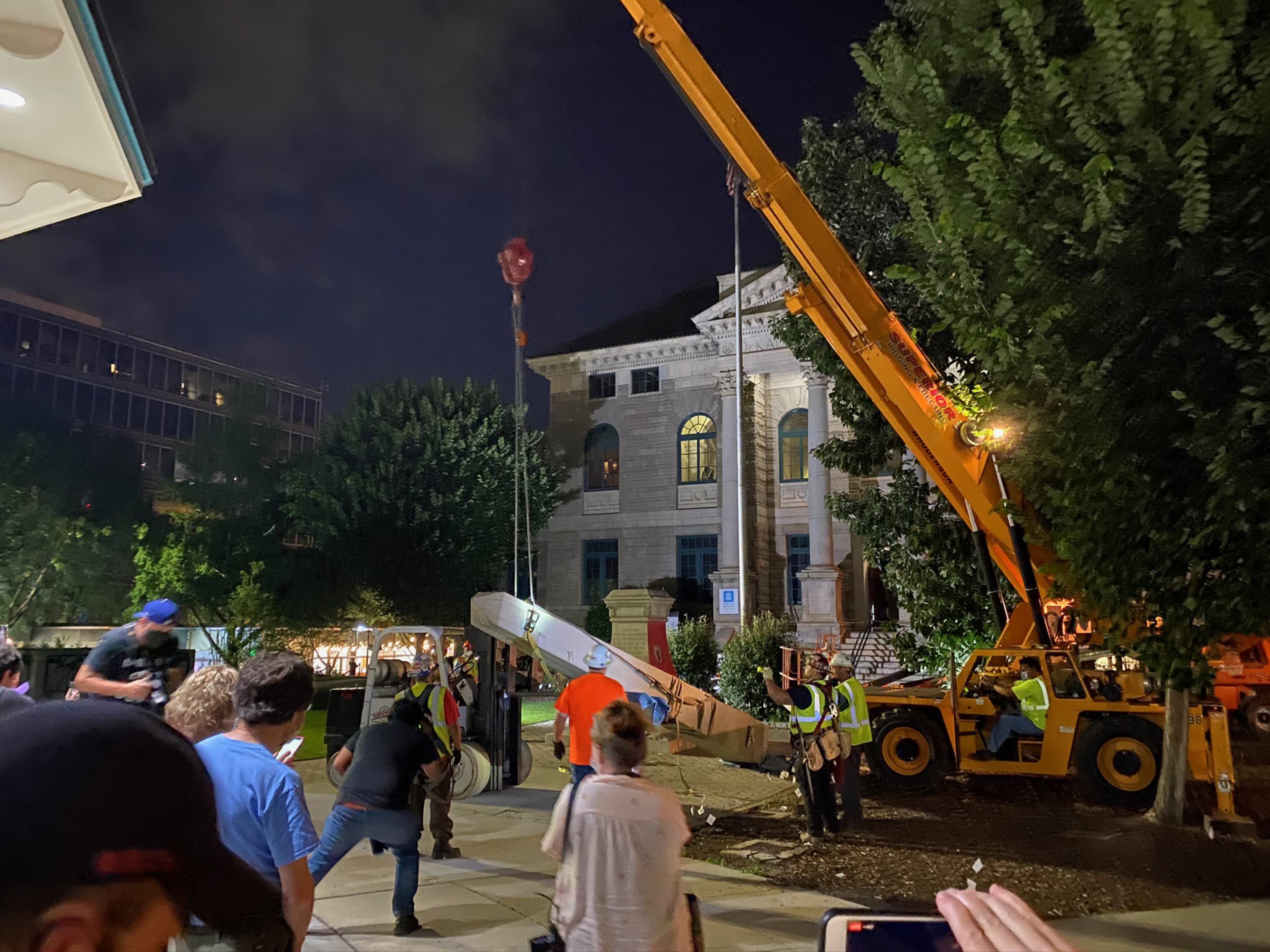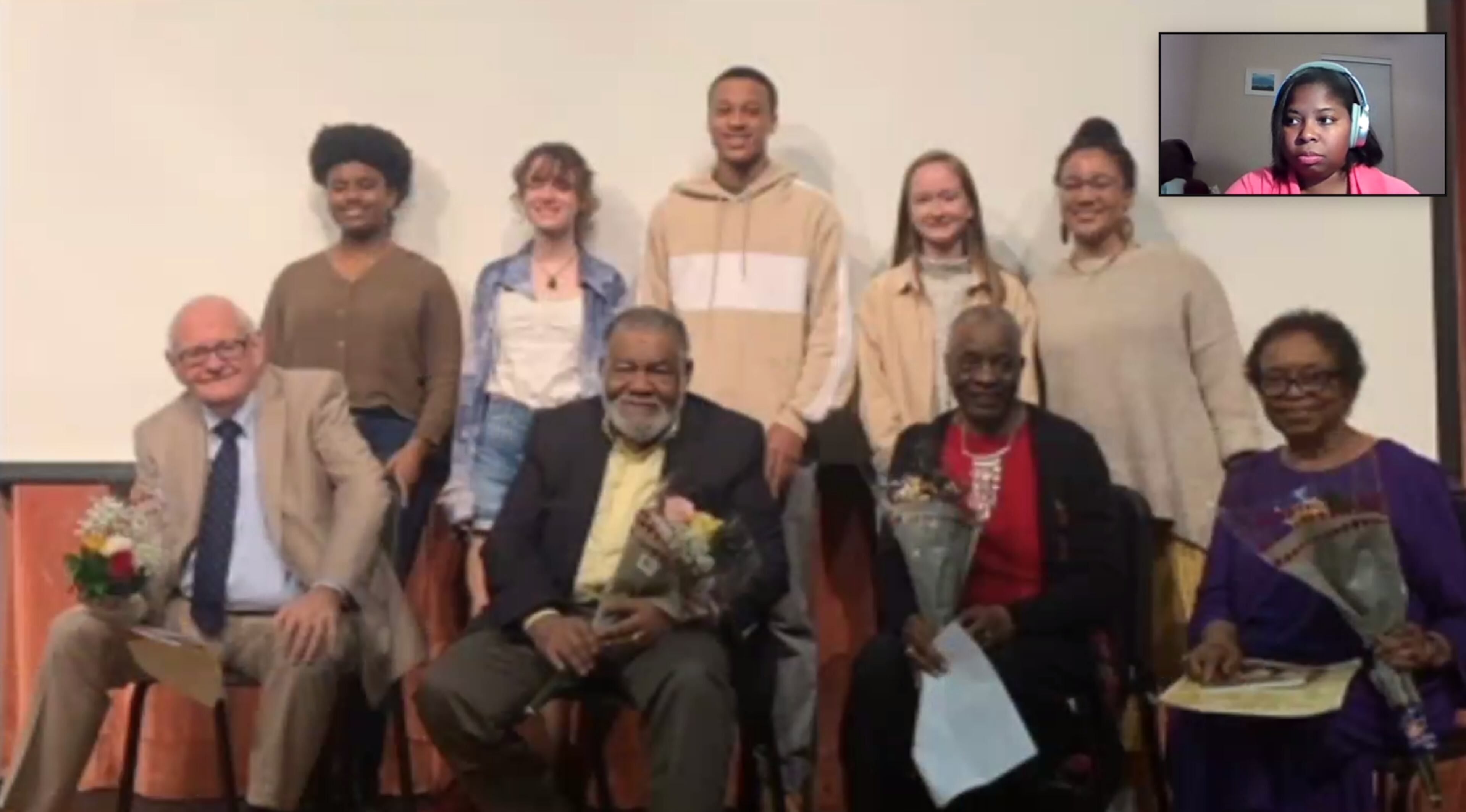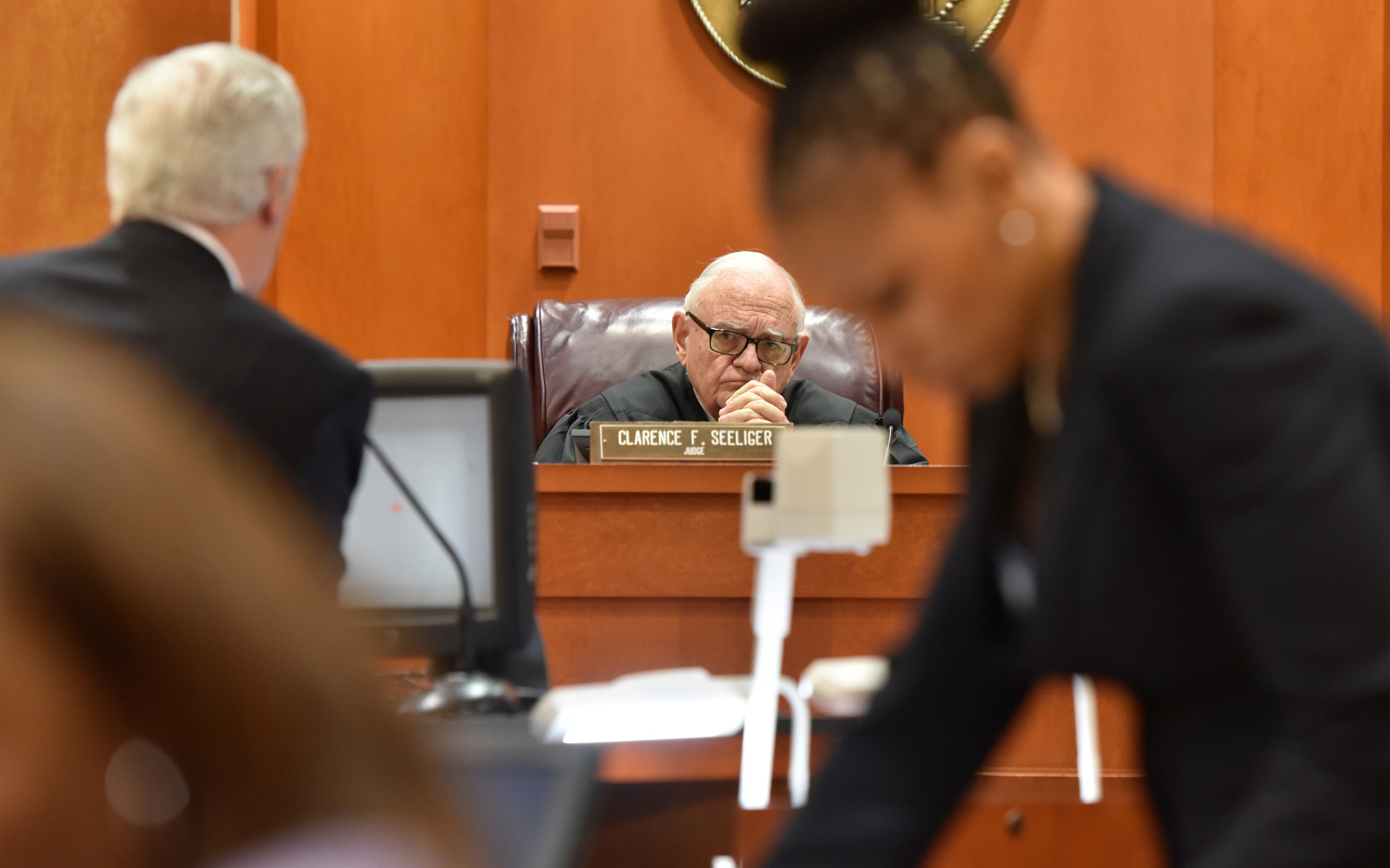Decatur students get historic marker approved to memorialize MLK’s arrest, release

A group of Decatur High School students will help leave a permanent mark in downtown Decatur to make sure that a lesser-known chapter in Martin Luther King Jr.’s activism is not forgotten.
The Georgia Historical Society will install a historic marker in downtown Decatur next year thanks to a group of teenagers, an adviser and a teacher. The self-proclaimed “Commemorating King” team sought to memorialize MLK’s arrest, “chain gang” sentencing and eventual release — all of which took place in Decatur more than 60 years ago.
The historic marker will be installed March 27 next year at the corner of N. McDonough Street and W. Trinity Place. That was the location of the since-destroyed courtroom where King was held and sentenced. It’s also only steps away from where a Confederate monument stood in Decatur Square for 112 years before it was removed in June.

Two of the “Commemorating King” students, Daxton Pettus and Genesis Reddicks, spoke about the change they’ve seen in Decatur as part of a Wednesday panel discussion that was hosted by the National Center for Civil and Human Rights.
“I think that being a student who has lived in Decatur for more than 10 years, knowing the history of your city speaks volumes in how your city has changed overall,” Pettus said. “Decatur went from being known as (Ku Klux) Klan county all the way to removing a Confederate monument from Decatur Square.”
The DHS students met with city leaders and activists to campaign for a new marker to highlight King’s ties to Decatur. The City of Decatur Commission formally backed the students’ proposal, signing on as a sponsor along with the Beacon Hill Black Alliance for Human Rights, a local community activism organization.
“I wanted to be able to leave my mark,” Reddicks said. “I’m hoping that the impact of this campaign will motivate other students and other young people to step up and take the torch and better our community.”

On Oct. 19, 1960, King was among 79 people arrested during mass sit-in demonstrations to protest segregated eating places in Atlanta restaurants, according to news accounts. Everyone was released except for King.
The civil rights leader was technically on probation in DeKalb due to a minor traffic violation from months earlier, when he was charged with driving without a license. Despite having a valid Alabama license, he pleaded guilty and paid a $25 fine, but DeKalb Judge J. Oscar Mitchell gave him a year of probation anyway.
DeKalb County Superior Court Judge Clarence Seeliger, who unseated Mitchell, was among the people the DHS students interviewed for their project, and he was blunt when describing his predecessor.
“(Mitchell) was a racist, and he didn’t mind saying so,” Seeliger said during an interview that was shown Wednesday. Seeliger was the judge who ordered that the Confederate monument be moved from Decatur Square.

Following King’s sit-in arrest in 1960, King was sentenced to four months of hard labor in a “Georgia public works camp,” according to an Associated Press story from the time.
The incident grabbed national attention, including the ire of then-presidential candidate John F. Kennedy and his brother Robert. Days before the 1960 presidential election, which JFK won, the two appealed to Mitchell and argued that bail cannot be denied for someone facing a misdemeanor sentence. That led to King being released on bond.
The final details on the marker are still in the works, but it will be cast in bronze. It was funded by an online fundraiser, which has since been closed. The initial fundraising goal was $5,000.
However, the students aren’t done. Both Pettus and Reddicks have turned their attention to a cannon located in Decatur Square, which was erected by the United Daughters of the Confederacy to memorialize the Creek Indian War of 1836.
“It’s really a cannon that symbolizes the genocide of indigenous people in Decatur and in Atlanta,” Reddicks said. “We’re advocating for it to be removed. That is one of the many projects my peers are working on to better the community.”



